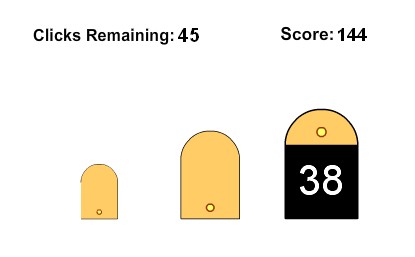Learn Just How Irrational You Are
-
-
slice.mit.edu
- 5
Filed Under
Recommended

The book Predictably Irrational (HarperCollins, 2008) by MIT Visiting Professor of Behavioral Economics Dan Ariely explores how people repeatedly and predictably make the wrong decisions in many aspects of their lives. For example, Ariely's research shows that people have difficulty dropping options, even if they clearly waste time or money. Don't believe it? Play the doors game and find out how you fare.
Ariely's book answers questions such as why people excitedly buy things they don't really need, why self promises to diet and exercise are so often in vain, and why a headache may vanish after taking a 50-cent but not a five-cent aspirin. His Web site offers numerous games, videos, and demonstrations that explore and expose everyday, irrational behaviors. Check them out and see how irrational you are.








Comments
Jim
Fri, 05/29/2009 8:47pm
This is a shockingly poorly designed experiment to appear on an MIT website. Why it's invalid: Switching doors means either that you don't understand the game or that you're being irrational. In your first game you don't yet understand the game so you switch. In your 2nd game, you understand the game so you don't switch. They then incorrectly conclude that the difference is caused not by a learning curve, but by the irrationality that they set out to prove. This is embarrassing and should be removed from this site.
Lynne
Fri, 05/29/2009 10:59am
I agree with a previous comment--the first time I had no idea what was going on, so switched more often to try to figure out the game. I had no idea a door was even going to close. A fairer test would be to do one round each way, then a second round each way once the player understands how the game works.
Dave
Thu, 05/28/2009 1:14pm
I would like to see a tabulation of the results of the player to date, to know how my score compared to those of others.
Robert L. Baber
Thu, 05/28/2009 4:12am
Switching obviously costs a lot in this game -- a click earning 0 points. Obviously, it seems to me, one should avoid switching doors. Find out quickly at the beginning which door seems to have the highest average win, and just click on it for the rest of the game.
It would be nice to know how well the player did, e.g. by telling him what the average of the distribution for the best door was.
Guy
Tue, 04/28/2009 10:14am
"You switched 5 times when the doors were shrinking, and 3 times when the doors were not. We find that most people switch more when the doors are shrinking and as a consequence of that, they are losing points ..."
Except the timing of the switches was not noted -- in the first case I "used" a couple of changes getting a notion of how the game worked. After that I used the same strategy both times. It had nothing to do with doors shrinking!